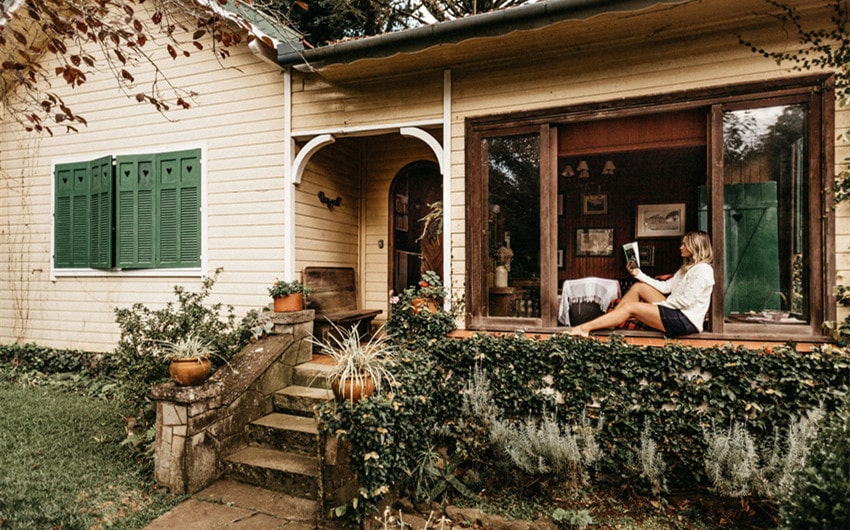Discover Why the Simplest Moments Often Inspire Creativity
Some of our most creative thoughts don’t come when we’re trying hard to be creative—they show up while we’re doing something simple, like washing dishes or staring out the window.
There’s something about these quiet, everyday moments that gives our minds room to wander. That’s why the simplest moments often inspire creativity—they give us a break from the noise and let new ideas rise to the surface without effort.
What Makes a Moment “Simple”?

A “simple” moment is the kind of experience that often slips by unnoticed. It’s those small, everyday pauses in life when nothing urgent is happening—like sitting on your porch, waiting for the kettle to boil, or taking a quiet walk without your phone. These are the moments when you’re not rushing, multitasking, or trying to solve a problem. They may seem unimportant on the surface, but they hold surprising depth.
What makes these moments simple isn’t just the activity itself—it’s the lack of noise, pressure, or expectation. You’re not expected to perform or produce anything. You’re just present. In these moments, time feels slower, and your mind naturally becomes more open and observant.
In a busy world filled with constant notifications, decisions, and distractions, simple moments give your brain a rare and valuable break. And it’s often during these quiet pauses that a spark of creativity appears—when you’re not even looking for it.
Why Quiet Moments Spark Big Ideas
Creativity doesn’t always happen when you sit down and demand it. In fact, some of the best ideas come when your mind is elsewhere—relaxed, wandering, or even a little bored. That’s the magic of quiet moments. They give your brain the freedom to drift without direction, which is when unexpected connections often form.
When your surroundings are calm and your attention isn’t pulled in every direction, your brain enters a more reflective, open state. Psychologists call this the “default mode network”—a part of your mind that becomes active when you’re not focused on anything in particular. It’s when your thoughts start to roam, daydreams take shape, and ideas start to link together on their own.
Simple activities like walking, washing dishes, or sitting in silence aren’t wasted time—they’re often when your most creative thinking takes place. These quiet moments act as gentle invitations for new ideas to surface, because your mind finally has the space to breathe.
Everyday Emotions as Creative Fuel

We often think creativity comes from dramatic events or strong, overwhelming emotions—but the truth is, everyday feelings can be just as powerful. A quiet moment of joy, a passing sense of loneliness, or the warmth of a routine can all stir something inside us. These small, honest emotions are deeply human, and they create rich material for creative expression.
Simple moments tend to be emotionally honest because they’re not forced. They carry subtle moods—comfort, nostalgia, peace, even melancholy—that many people can relate to. A songwriter might draw inspiration from the quiet sadness of drinking coffee alone.
A painter might capture the stillness of a late afternoon. A writer might describe the feeling of walking home at sunset, thinking about nothing and everything all at once.
Because these moments are rooted in real life, the emotions tied to them feel authentic. That authenticity is what gives creative work its impact. When we allow ourselves to notice and feel what’s happening in everyday life, we’re also gathering fuel for creative expression that feels real and meaningful—not just for us, but for anyone who experiences it.
Seeing the World with Fresh Eyes
Simple moments slow us down, and when we slow down, we start to notice things we usually overlook. The way sunlight hits a wall. The sound of rain tapping on the window. The quiet rhythm of someone walking nearby. These small details might seem unimportant, but they can shift our perspective and reveal beauty in unexpected places.
Creativity often begins with observation. Artists, writers, and inventors see what others miss—not because they’re more talented, but because they’re more attentive. They look closer. And simple, unrushed moments create the perfect conditions for that kind of deep noticing.
When we’re not distracted, we’re more open to our surroundings. We start to experience the world in a more curious, childlike way. Everything feels a little more vivid, a little more meaningful. That sense of wonder is the seed of creativity. It pushes us to ask questions, explore possibilities, and express what we see in our own unique way.
By paying attention to the ordinary, we train ourselves to see the extraordinary—and that’s where creativity begins.
How to Invite More Creative Moments Into Your Life

Simple moments don’t always just happen—we often have to make room for them. In a world full of noise, speed, and distraction, creating space for creativity means being intentional about slowing down. Here are a few simple ways to welcome more quiet, inspiring moments into your everyday life:
1. Take Breaks Without Screens
We’re so used to filling every quiet moment with scrolling, swiping, or checking notifications. But when you constantly feed your brain with input, there’s no room for your own thoughts to grow. The next time you’re waiting for something or have a few spare minutes, resist the urge to reach for your phone.
Instead, sit with the moment. Look around. Let your mind wander, without distraction or agenda. These brief pauses may seem boring at first, but they’re actually powerful opportunities for your mind to rest—and for creativity to quietly take root.
2. Go for Slow Walks
Walking has a natural rhythm that encourages mental clarity. When you’re not in a rush, your mind starts to loosen its grip on rigid thoughts and opens up to new ones. Take a slow walk without a destination in mind. Skip the podcast or playlist. Just let the sights, sounds, and pace of your steps guide you.
You might notice the shape of a cloud, a line of dialogue in your head, or a problem you’ve been stuck on suddenly feeling lighter. These small insights often come not in spite of the simplicity, but because of it.
3. Journal Without a Plan
You don’t need a fancy notebook or poetic words to journal—just something to write with and a few quiet minutes. Let go of structure or pressure and simply write what’s on your mind. It could be something you noticed, something you’re feeling, or even something you can’t quite put into words yet.
The goal isn’t perfection—it’s presence. Journaling helps you connect with your thoughts in a raw, honest way, which often leads to unexpected creative sparks. Sometimes, writing without a plan reveals ideas you didn’t know you had.
4. Protect Pockets of Quiet Time
Life can feel nonstop, but creativity thrives in the still spaces between all the motion. Try to protect even small bits of time in your day that are quiet and distraction-free. Maybe it’s ten minutes before everyone else wakes up, a few moments after lunch, or a device-free evening walk.
These little windows of calm allow your mind to reset and slow down. And in that slower state, ideas often surface more gently and naturally, without being forced.
5. Practice Noticing the Small Stuff
So much of the world passes by unnoticed. But the tiniest things—a flicker of light, a facial expression, a passing phrase—can hold so much beauty and inspiration. Start practicing the art of noticing. Pay attention to what others overlook.
Look up from your routine and observe your environment with curiosity, as if you’re seeing it for the first time. The more you train yourself to see detail, the more your creative mind will start picking up on the little threads that can be spun into bigger ideas.
6. Give Yourself Permission to Do Nothing
In a culture that praises hustle and productivity, doing nothing can feel uncomfortable—even wrong. But idleness is not wasted time; it’s where the mind stretches, dreams, and plays. Let yourself rest without guilt. Sit by a window. Stare at the ceiling. Lie in the grass and do absolutely nothing.
These moments may feel unproductive on the surface, but inside, your brain is connecting dots, sorting through thoughts, and opening doors to ideas you couldn’t reach while rushing. Creativity needs space, and doing nothing creates that space.






